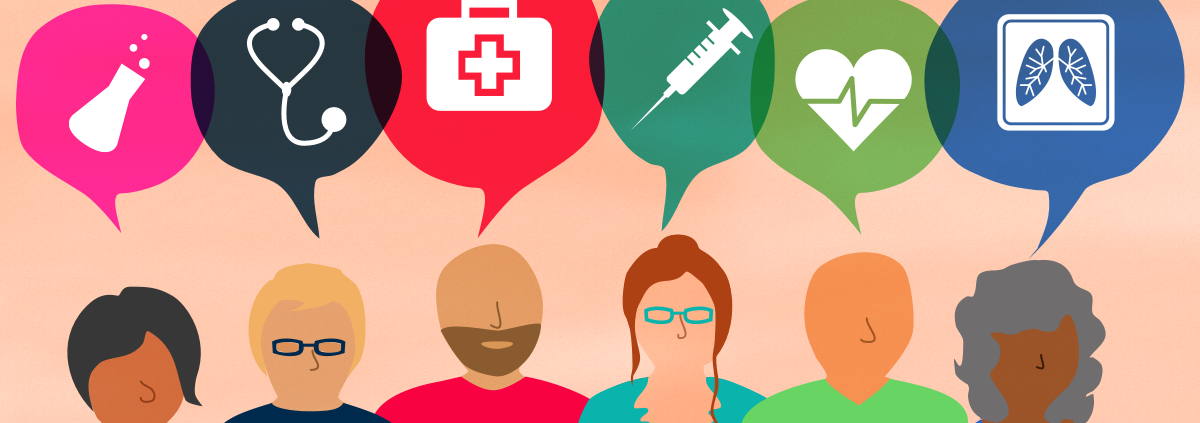Building Insights for Patient Focused Drug Development: Understanding Patient Desires and Barriers
Published July 12th, 2022 | 3 Minute Read
 By Blaine Cloud
By Blaine Cloud
Senior VP, Insights
Health Union
In 2019, the last calendar year before the COVID-19 pandemic, over forty (40) articles* were published involving clinical studies with decentralized, remote or hybrid trials. During the pandemic, it is likely that the percent of trials with full or partially decentralized site visits increased, an idea that is further supported by research conducted by McKinsey that was published in 2021. Action taken by the FDA also signals greater acceptance of decentralized trial components and a push for greater diversity of trial subjects.
Despite these positive changes in the industry, sponsors continue to have recruitment challenges with completing trials on time and on-budget.
One way to minimize these challenges is to bring the voice of the patient to trial design and execution; a portion of what the FDA calls Patient Focused Drug Development (PFDD).
As experts in clinical services, Health Union engages patients and caregivers in patient focused drug development conversations. Through our social health networks, we can access patients who could become eligible study subjects, acting as a “meta advocacy” organization as some members are patient leaders and advocates within their respective condition advocacy associations. We assess patients’ motivations and desires around clinical trials and share this information with our partners to help bring meaningful and positive change to clinical trial development, recruitment, and execution.
In two Health Union survey samples of 1,925 and 607 US patients respectively, whose chronic conditions would have potentially qualified them for a clinical trial, we studied what makes clinical trial enrollment attractive to patients. In the years just prior to the COVID pandemic, patients were drawn to enroll in trials for personal and altruistic reasons, highlighted by the following:
- Clinical trial interest is driven by hope of finding a therapy that may finally, or adequately, provide effectiveness for their condition (86% of those surveyed) whereas only 11% of patients felt a trial is only a means of gaining financial access to therapy
- Of the 17% of chronic patients who had participated in a clinical trial, 43% learned about the trial from their healthcare provider and only 6% searched and found the trial on their own.
- A more recent 2020 survey found that online communities and support groups appeared to be an increasing source of trial awareness, with 11% of participants learning about them in this way)
- Past trial participants wished they had access to key information that was never provided including:
- My data after the trial: 41%
- Aggregate study results: 37%
- Knowledge of treatment plan after the trial: 28%
- Who the study sponsor was before the trial started: 23%
- Among those taking the most recent Health Union survey (n=607), reasons for not participating in a clinical trial included:
- The exclusion criteria were too restrictive for me to qualify: 23%
- The site was too far away from home: 21%
- Fear of an untested/new medication: 14%
Related Articles
Five Simple Ways to Improve Clinical Trial Recruitment
Health Union often partners with study sponsors and contract research organizations (CROs) to supplement clinical trial recruitment efforts. Based on this experience, here are five simple suggestions for CROs to help guide patients from the point at which they express interest in a study through to completion.
Online Health Communities: A New Frontier in Health Research
Accepted and presented at the DIA 2017 Conference.
WHITEPAPER DOWNLOAD: Patient Experience in Clinical Trials
Download the whitepaper, “Patient Experience in Clinical Trials,” which analyzes differences in the perceptions of those who have participated in a clinical trial in the last five years to those participants prior to 2013, and how to dispel the myths that exist in the industry by looking through a true patient-centric lens.
On an ongoing basis, Health Union assesses perceptions of clinical trial interest and clinical trial features within our online social health communities and shares findings with industry partners.
If your organization is looking to understand and address patient needs during early stage clinical development to enhance trial design, recruitment tactics, and retention efforts, we invite you to contact us today.
*Source: PubMed internal search
Related Articles
Chronic Migraine Headaches: Role of Smoking and Locus of Control
The findings of the present study imply that behavioral and psychological interventions can be beneficial for chronic migraines with external locus of control as those interventions can improve not only their psychological wellbeing but also their migraine outcomes.
Fostering Confidence in Newly Diagnosed Autoimmune Patients
Survey data shows people newly diagnosed with an autoimmune condition report being less active and less confident in their treatment decisions.
Blood Cancer Patient-Reported Survey Data | 2020
58% of blood cancer patients feel satisfied with their current treatment plan, according to new Health Union survey data from its online health community.




